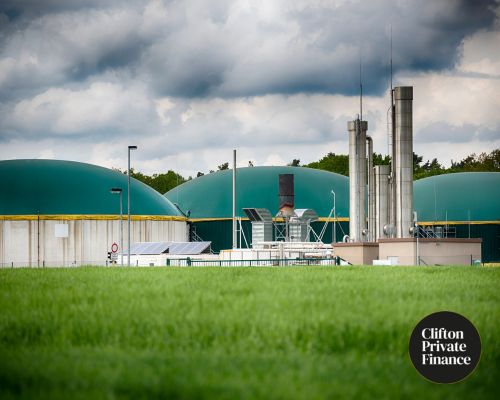With extensive lender contacts and decades of combined experience, our brokers have supported projects of all sizes. Our services include:
- Sourcing competitive loan rates from our panel of over 100 lenders
- Analysing project viability and matching the best funding products
- Completing detailed financial assessments
- Preparing loan applications to maximise success
- Securing fast approval in principles
- Liaising with solicitors to ensure quick completions
- Providing support at every stage from initial enquiry to pay-out
For bespoke advice on your construction project, please contact our team. We'll review your plans in detail and deliver proposals from our wide range of lenders.
- Development Loans - Funding to cover land purchase, construction costs and professional fees for residential or commercial projects. Repaid after completion from sale proceeds.
- Bridging Loans - Short-term property finance to fund site acquisition and provide working capital before longer-term finance is secured.
- Asset Finance - Funding to acquire construction equipment like excavators, forklift trucks, dump trucks, telehandlers, cranes and scaffolding. Manageable monthly repayments structured to suit cash flow.
- Invoice Finance - For construction companies: release up to 90% of unpaid invoices to ease cash flow pressures during construction projects.
- Business Loans - Provide additional working capital to cover overheads like materials and wages with a business loan.
We provide high-quality construction finance solutions for UK and international clients.
Written by: Sam Hodgson
Last Updated: 13/10/2023
Contents
How Construction Finance Works
Advantages of Construction Finance
The Best Type of Loans for Construction
Construction Loan Costs and Interest Rates
Stages of a Construction Project
Preparing Your Construction Finance Application
Get Specialist Construction Finance
How Construction Finance Works
Construction loans typically provide the capital required to fund building projects before any revenue is generated. The financing covers costs like materials, equipment, professional fees and wages during the development phase.
The lending is secured against the constructed asset, such as land or property, and the loan is then repaid after the project finishes from the proceeds of selling or leasing the completed development, or through refinancing with a commercial mortgage or other longer term finance solution.
The lending enables developers and contractors to fund projects that would otherwise be impossible due to high upfront costs.
In the modern world of construction, this type of financing is essential for growth in the construction and property development sector.
Construction Finance Calculator
To get a better understanding of how construction finance quotes are calculated and the rates and fees you'll expect to pay, check out our construction finance calculator:
Construction Finance Case Studies
Read our most recent construction finance case studies to learn the ins and outs of construction finance from real examples where we've helped our clients secure funding for their various construction projects:
Advantages of Construction Finance
Construction finance offers a range of significant benefits that are crucial for successful building projects. Let's delve deeper into each of these advantages:
Access capital for growth
Construction finance provides the capital needed to embark on and complete new projects, helping businesses expand their portfolios, bid on substantial contracts, and grow their businesses.
Improve cash flow
Construction projects often require upfront costs, which can strain cash flow. Types of construction loans such as invoice finance, can alleviate this burden by providing the necessary funds during the project, allowing businesses to manage their expenses more effectively, pay suppliers and workers on time, and maintain better project oversight.
Acquire equipment
Construction equipment can be expensive, but construction finance loans like equipment loans can enable businesses to acquire the tools they need without significant upfront payments. Helping them to complete projects efficiently and competitively.
Protect against inflation
Construction materials and labour costs can be significantly impacted by inflation. Construction finance can help by locking in expenses early in the project, providing cost certainty, which is particularly beneficial for long-term projects.
Flexible use of funds
Construction loans typically offer drawdown facilities, allowing businesses to access funds as needed, reducing interest costs and supporting efficient project management.
Manage risks
Construction projects can often come with unexpected costs and challenges. Construction finance can act as a safety net, helping businesses to address unforeseen expenses and project delays, maintain project momentum, and minimise risks, increasing the likelihood of a successful completion.
The Best Loan Types for Construction
If you are undertaking a building project, there are a few key finance options to consider:
Bridging Loans
One of the most common forms of construction finance. Bridging provides short-term loans to fund site acquisition, enable works, and cover costs before longer-term finance is arranged.
With loans from £30k up to £10m available, bridging loans deliver the short-term capital injection needed to get projects moving rapidly.
Development Loans
Also known as development finance, these are usually longer-term loans that cover the upfront costs of construction through to the point of project completion and sale.
The lending can cover land purchase, build costs, professional fees, site preparation, materials, labour, and other developmental costs.
With funding terms from 6 months up to 5 years available, development loans enable builders to undertake projects from start to finish.
Asset Finance
Asset finance provides loans specifically tailored to fund the purchase of construction equipment like excavators, cranes, and dumper trucks.
The asset being financed acts as security, while repayments are structured over an affordable timeframe of 2-5 years.
This matches the useful lifespan of the equipment. With finance from £5k up to £25m available, asset loans make acquiring vital plant machinery easy.
Construction Finance Costs and Interest Rates
When securing construction finance, the costs and interest rates can vary considerably depending on multiple factors:
Loan Type
- Bridging loans are short-term, so rates can be higher than development loans or commercial mortgages designed for longer terms. Bridging rates typically range from 0.5% to 0.9% per month.
- Development loans can attract lower rates than bridging but are usually higher than commercial mortgages. Rates are commonly between 0.8% to 1.0% per month.
- Asset finance rates are competitive as the equipment purchased provides security. Rates generally start from 5.5% APR.
- Business loans are unsecured so represent higher risk. Rates can fluctuate but are typically around 7% to 12% APR.
Loan Term
- Short-term bridging loans under 12 months have higher rates from 0.55% per month.
- Development loans over 12 months can see rates as low as 0.5% per month.
- Longer terms above 2 years provide the most competitive rates.
Loan Amount
- Loans below £500k often have higher rates.
- Loans above £1m often achieve the most competitive rates due to reduced risk with scale.
Your Credit Rating
- The better your financial track record, the lower the interest rate, but having bad credit isn't a deal breaker.
Project Complexity
- Small-scale simple renovations may achieve lower rates.
- Large new build developments are at higher risk, for example, so rates may be higher.
- The simpler your project, the more competitive rates you can get.
Stages of a Construction Project
Major building projects typically progress through four key phases, each requiring financing. This is why drawdown funding can be so useful, because each stage has very different costs and timescales.
Pre-Construction - Finance needed for feasibility studies, architectural plans, permits, and site acquisition.
Site Preparation - Funding required for clearing land, initial groundworks, and laying foundations.
Construction - The main phase covers build costs, materials, equipment and labour.
Completion - Final funds for fit-out, landscaping and professional fees through to project handover.
Understanding these stages enables developers to structure finance applications and drawdown facilities to match their cash flow needs.
Collateral Needed for Construction Loans
Depending on project risk levels, lenders may require additional security to provide comfort on construction loans. Typical collateral includes:
- The land or property being developed.
- Additional property assets owned by the borrower.
- Cash reserves held as security.
- Director or parent company guarantees.
- Debentures over company assets.
- Share pledges of the developer's company.
Having assets readily available to offer as security can make obtaining finance more straightforward. Our brokers can assess options during initial consultations.
Preparing Your Construction Finance Application
Submitting a compelling application is crucial to securing approval from lenders. At Clifton Private Finance, our experienced brokers will work closely with you to compile the necessary documentation.
During initial consultations, we’ll discuss the documents needed for your project. While requirements vary depending on factors like loan purpose, amount and term, some typical documents include:
Financial Forecasts - Detailed cash flow projections and development appraisals help demonstrate project viability. We can assist with producing accurate forecasts.
Business Plan - This central document must outline project details, timelines, budgets, experience and funding amount required. Our team can review draft plans.
Planning Permissions - Fully approved permissions are essential. We will ensure these are satisfactory before submitting any application.
Professional Team - Profiles of architects, project managers etc. provide re-assurance on capabilities.
Construction Contracts - Quotes and contracts demonstrate you have costs covered.
Financial History - Personal and business accounts for the last 2-3 years.
Proof of Property - Title deeds and evidence of site ownership.
Collateral - Loans may require security against existing property.
Once we have carefully compiled your application file, we will undertake thorough quality checks before submitting it to our lender panel. Our hands-on approach delivers peace of mind and the best chance of securing your essential construction finance.
Get Specialist Construction Finance
We understand that each construction project is unique, and you may have specific questions or require tailored advice.
At Clifton Private Finance, our team of experts boasts years of experience supporting builders across various sectors, including residential, commercial, and public projects. We are here to assist you every step of the way.
Here's how you can get in touch:
Call us at 0117 959 5094 to book an appointment with one of our knowledgeable advisors.
Our 24/7 online chat is a convenient way to connect with us instantly. We're here to respond promptly to your inquiries and provide real-time assistance.
You can also book a consultation with an expert below:
FAQs
How quickly can I access funds?
With approved development finance, bridging loans or business loans, we can often release funds to you within 7-14 days. However, larger development projects can take significantly longer depending on the complexity of your proposal.
What trades are eligible for contractors' business loans?
Typical trades include groundworks, brickwork, roofing, electrical, plumbing, carpentry, painting & decorating, plant operators and more.
Is finance available for domestic projects?
Yes, construction loans can fund home renovations, extensions, conversions and new builds - for both homeowners and builders.
How much can I borrow for a new home construction loan?
The amount you can borrow for a new home construction loan will depend on a number of factors, including your income, expenses, credit score, and the value of the finished property.
Lenders will typically lend up to 75% of the value of the finished property. However, some lenders may offer loans of up to 90% of the property value, subject to certain conditions.















